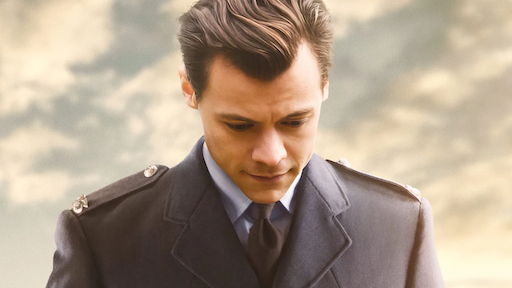Stories like “My Policeman” will continue to be brutally relevant as long as the LGBTQ+ community experiences discrimination.
My Policeman, the newest movie available on Amazon Prime Video, is ostensibly set in both 1957 and 1999. However, there is actually a third time period at work here: the present.
Michael Grandage, the director of My Policeman, claims that this year is “the prism we’re watching this picture through.” “During that time, there is nothing we can do to change it. since it is currently. It’s us. It’s taking place. It’s true. It is present.
In My Policeman, a forbidden affair develops between police officer Tom (Harry Styles and Linus Roache), his wife Marion (Emma Corrin and Gina McKee), and museum curator Patrick (David Dawson and Rupert Everett). The majority of the gay love story of My Policeman occurs in 1957, when same-sex relationships were still illegal in the UK.
But is My Policeman still a narrative worth recounting in light of the strides achieved in queer rights since the 1950s?
Grandage thinks that it is more crucial than ever for this movie to reach a young audience.
Anti-LGBTQ+ hate crimes have increased yearly in the UK, where 64% of the gay population has experienced anti-LGBT+ abuse or violence.
Anti-queer legislation is being drafted in the US more than ever before. In 2022, Texas Governor Greg Abbott’s attacks on transgender youngsters gained significant traction, while Florida approved its “Don’t Say Gay” statute. Furthermore, Republican lawmakers had already introduced at least 325 measures that specifically targeted LGBTQ+ individuals as of April. 69 nations throughout the world continue to outlaw same-sex relationships. In chapter 11, homosexuality carries a death sentence.
In addition to unfavourable regulations, living as a transgender person in the US is physically risky. With 50 recorded killings, 2021 was the worst year on record for transgender and gender nonconforming people, according to the Human Rights Campaign. Already this year, 30 more violent transgender deaths have occurred.
So yes, even though it draws from decades-old history—history that much of My Policeman’s audience may be completely ignorant of—a story of queer oppression is still all too current in 2022.
Grandage adds, “I was hopeful—and certainly, I think it will be the case—that hiring Emma Corrin and Harry Styles will open the film up to a large variety of young people.” “They need to experience what it’s like to live in a society where doing what you want to do is illegal, where the government forbids you from being who you are. And they must contribute to the argument for why we must never go back there.
The queer romance subgenre isn’t revolutionised by My Policeman. Love triangles are nothing new. We’ve witnessed betrayals, coming-outs, and hiding-outs. The film isn’t a must-see just because of its performances, which range in calibre from David Dawson’s enthralling wit to Harry Styles’s… well… absolutely passable delivery. But it does stand out in the contemporary LGBT media scene where there has been a shift toward lighter fare. It makes sense and is vital that marginalised authors and filmmakers have worked hard to tell stories that go beyond the suffering of their communities.
But Grandage adds, “I also think we need to periodically remind ourselves when we live in such a delicate, vulnerable time that if you restrict people from being free, this is what happens.
With My Policeman, Grandage hopes to highlight the perils of an oppressive society and the long-lasting repercussions it can have on the downtrodden.
In terms of society and politics, Grandage says, “I would love people to seriously think about where we are with LGBT politics generally in the world and why it is crucial that we keep moving ahead and never backward.”
